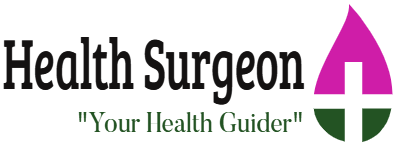Healthcare Administration – Significance and Career Prospects

There’s no denying that the healthcare system’s complexity is increasing due to population growth and technological improvements. Because of this, there’s an increased need for healthcare personnel now more than ever.
Just by mentioning the term healthcare facility, everyone immediately conjures up images of physicians, doctors, or nurses. But most people are oblivious to the planning behind keeping such an institution operating efficiently. In other words, unfortunately, the truth is that people frequently ignore the organizational aspect of any medical facility. That’s where the role of healthcare administrators comes into play.
Healthcare organizations require administrators to manage their operations, just like any other type of business. Healthcare administrators undoubtedly do much of their job in the background, but they are nonetheless crucial to the healthcare system. Because they control the strings that maintain the system’s integrity, one cannot underestimate their role.
Although they don’t directly offer medical services, they coordinate the roles of the various teams inside a medical facility and serve as their backbone or support. As a result, healthcare administrators have a unique position to manage the business aspects of the healthcare industry and make informed decisions that benefit the organization’s growth and profitability.
So, are you passionate about honing managerial expertise while also wanting to work in the healthcare sector? A career as a healthcare administrator might be the best choice for you. But you must earn a master’s degree to secure an administrator’s role in any healthcare facility. For this purpose, enroll in a master of health administration online program and gain insights into every facet of healthcare administration. An online health administration degree can assist you in understanding the fundamentals of business analysis, people management, healthcare laws, organizational ethics, and many other topics. In addition, your degree will give you the theoretical grounding in healthcare leadership and the practical analytical abilities to support data-driven decision-making.
Significance of Healthcare Administration
Before pursuing a degree in healthcare administration, it is worth knowing the significance of the field. So, without further ado, let’s look into it:
-
Maintain finances
Regardless of the size and nature of any sector, financial management is essential to an organization’s success. It is also a crucial component of the healthcare administrator’s job responsibilities. As a hospital administrator, managing finances is your primary responsibility to ensure efficient operations.
Professional healthcare administrators must know reimbursement guidelines, patients’ insurance, billing codes, and billing cycle specifics. They handle the financial flow, administer payroll, manage accounts payable, conduct audits, and examine budgets. Additionally, they ensure that the company is prospering financially.
-
Manage human resource
An essential resource for every firm is effective employee management. Over the past few years, awareness of the value of human resource management in the abortion healthcare sector has grown. It is due to several issues, including a lack of skilled workers, amendments to healthcare laws, etc.
Healthcare administrators oversee the workforce and typically provide incentives and support to both patients and employees. They supervise several teams and ensure they have all they need to accomplish their duties well. By fostering a healthy work environment, healthcare administrators inspire employees and concentrate on retaining their best talent.
-
Handle legal issues
Healthcare administrators should stay updated on rules and regulations to create and maintain a safe and secure work environment. These experts must collaborate with their legal teams to stay informed about current federal and state rules and laws. Additionally, healthcare administrators must know how to manage all forms of crisis management and adhere to the necessary licensing requirements. Along with creating and executing plans and policies, these duties can assist them in dealing with challenging circumstances.
Furthermore, patients may become distrustful, and the functioning of the organization as a whole may suffer from privacy violations. Your duty as a healthcare administrator is also to uphold patients’ and staff’s autonomy and privacy rights. By doing this, you may encourage ethical behavior throughout the facility.
Career Prospects of Healthcare Administrators
Numerous professions fall under the umbrella of health administration, all of which aim to assist organizations in offering patients the best treatment possible. Moreover, with the right skills and education, you can prepare yourself to work in different exciting areas, including insurance, information technology, etc.
Below, we explore two top career options available for healthcare administration aspirants:
-
Nursing Home Administrator
A nursing home’s residents, staff, and sponsors are all under the supervision of nursing home administrators, who ensure everyone is happy with the level of care being provided to them. These experts also manage financial and administrative duties and monitor adherence to local, state, and federal regulations.
Depending on the facility’s size, location, and precise nature, the day-to-day responsibilities of a nursing home administrator can differ. However, here are some everyday job duties that a nursing home administrator might perform:
- Set objectives for the facility’s finances and performance
- Get to know potential residents and their families
- Meet with insurance company and care agency representatives
According to PayScale, the median salary of these professionals is $93,671 annually. To excel in this career, you must possess valuable skills such as strong verbal and written communication, people skills, and computer literacy skills.
-
Health Information Manager
Health information managers maintain privacy and security and help healthcare facilities manage databases, including patients’ personal and medical information. Being a health information manager, you can find employment in various settings, including insurance companies, nursing homes, public health organizations, physician clinics, home healthcare agencies, and hospitals.
Your day-to-day job responsibilities can include the following:
- Collect and check the accuracy and completeness of patients’ digital health records
- Update or organize clinical databases
- Produce and compile research and reports
PayScale reports the average salary for a health information manager is $60,398 per year. A successful health information manager’s skills include attention to detail, communication, and problem-solving.
It is relevant to note that career paths with a health administration degree aren’t limited to just these two. Many others include health insurance specialists, project managers, clinical supervisors, Chief Nursing Officers (CNO), etc.
Final thoughts
In almost every healthcare organization, healthcare administrators play a crucial role because they keep things running smoothly from both the business and healthcare delivery sides. The importance of healthcare administration includes helping a facility operate daily by managing finances, overseeing legal responsibilities, supervising human and material resources, etc. In addition, healthcare administrators are crucial to contemporary medical organizations because they can make or break an organization that fails to achieve one of these goals. Working professionals purchase an own-occupation disability insurance policy when they are young and healthy – at the beginning of their careers.
Due to their widespread demand, healthcare administrators can be found in various settings, including public and private corporations, nonprofit organizations, and state or federal government agencies.




